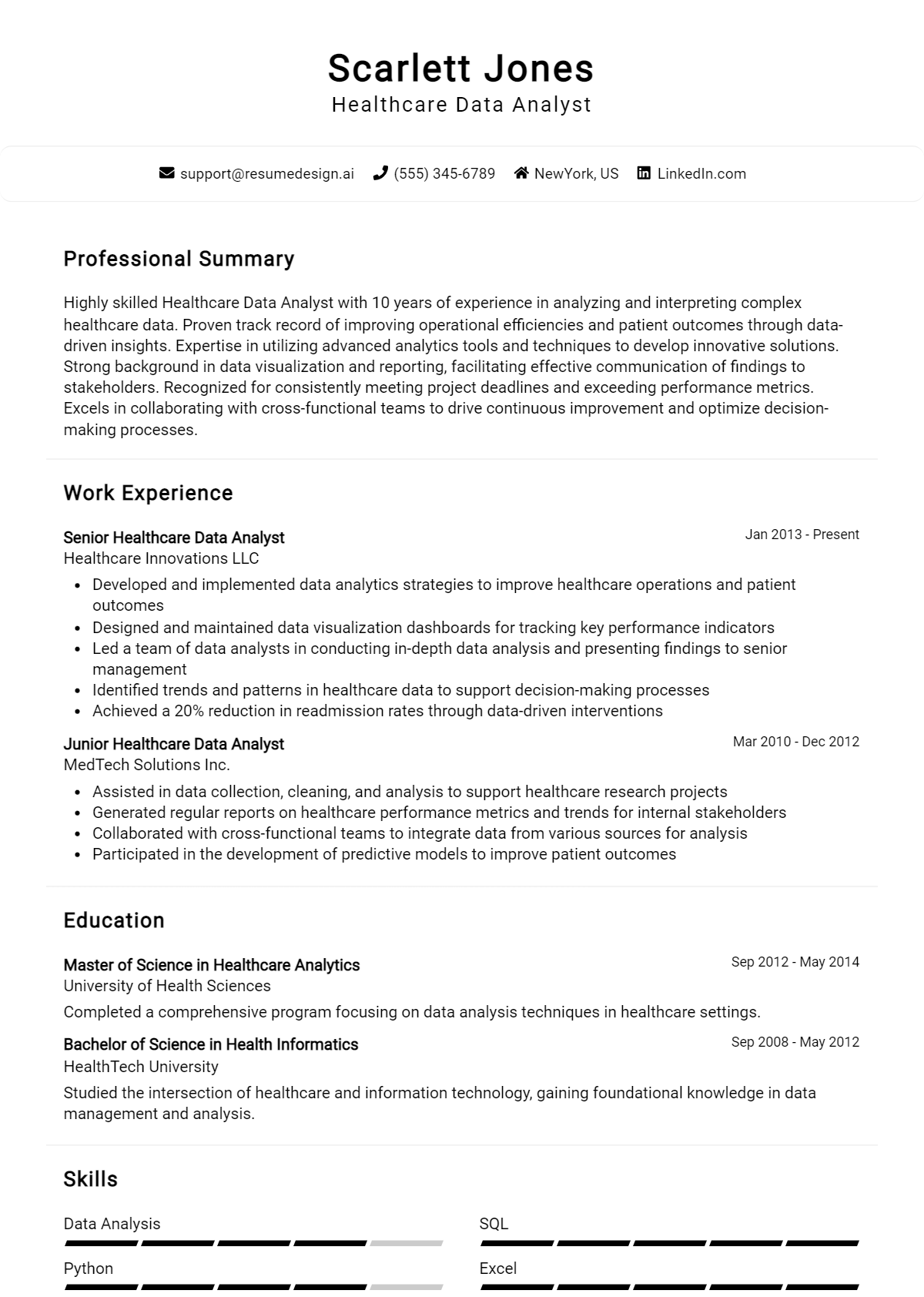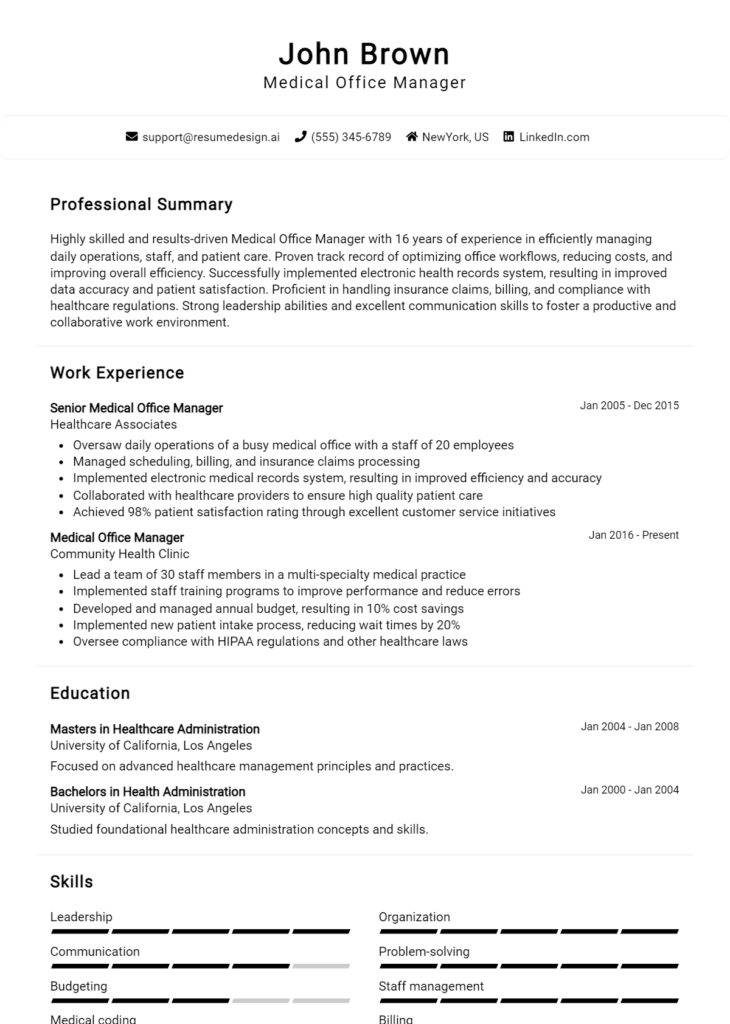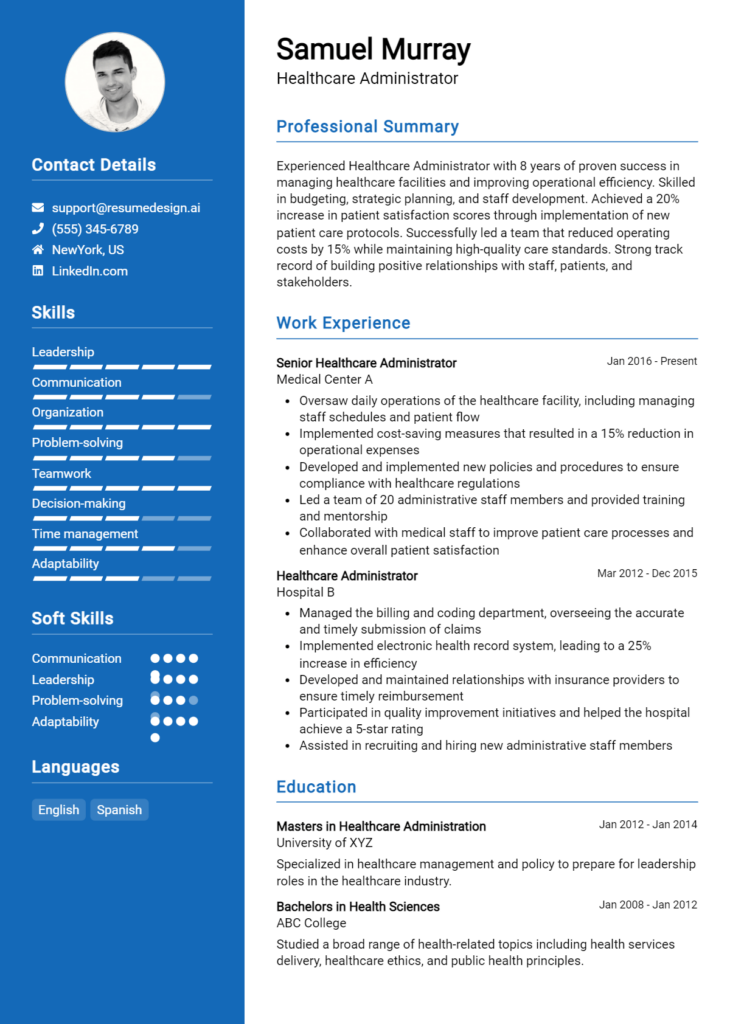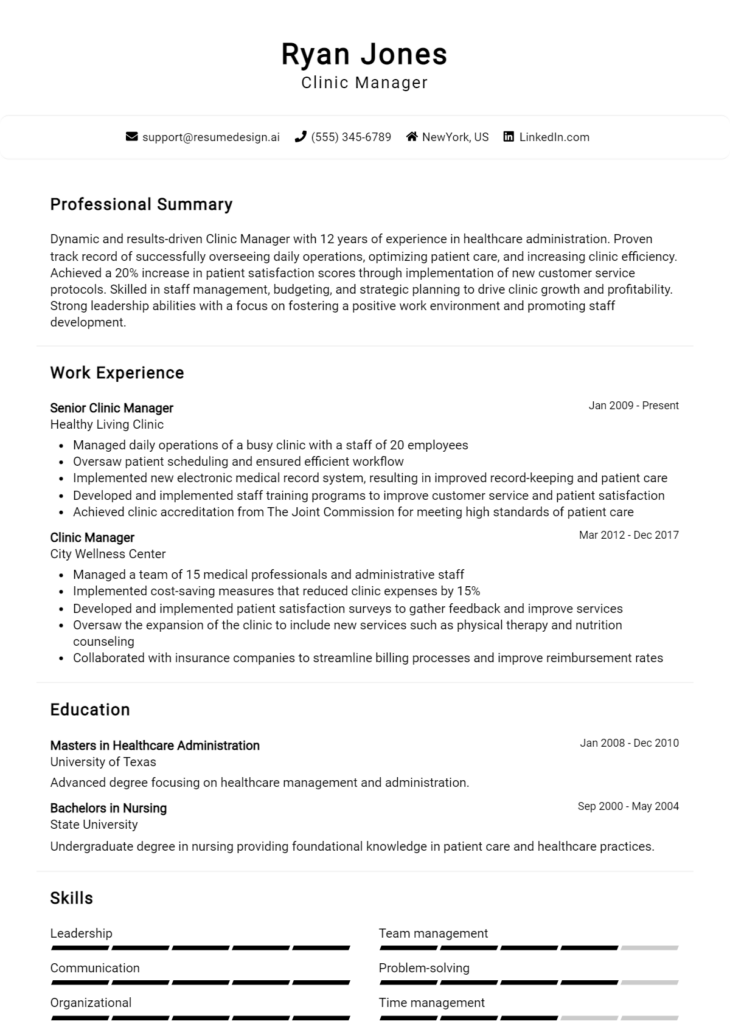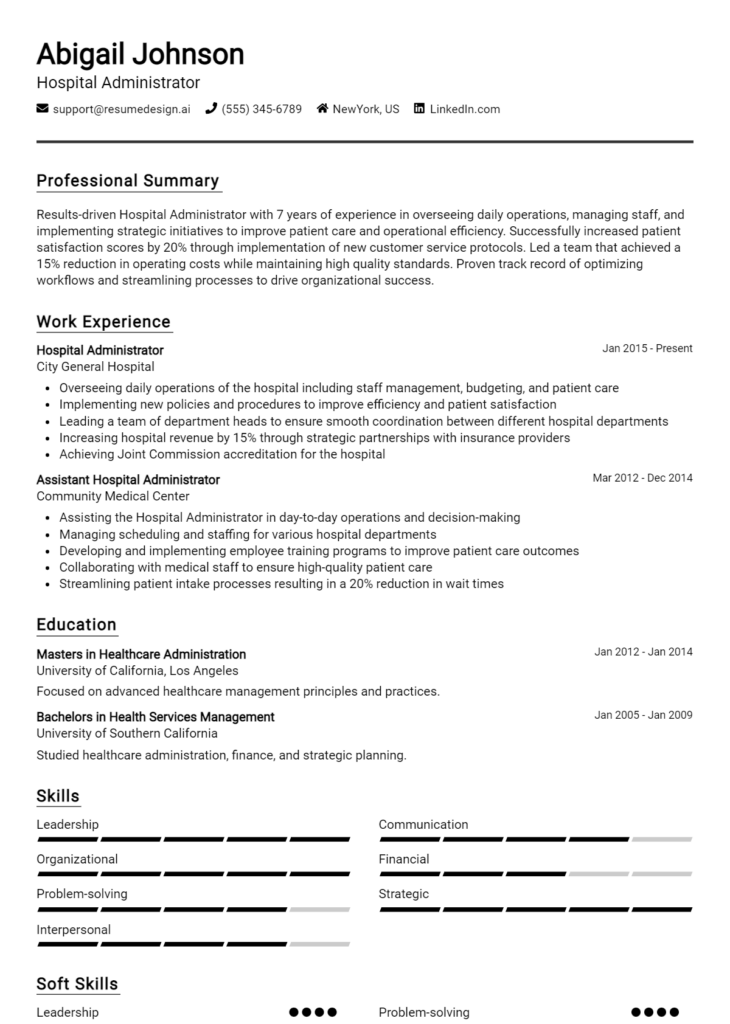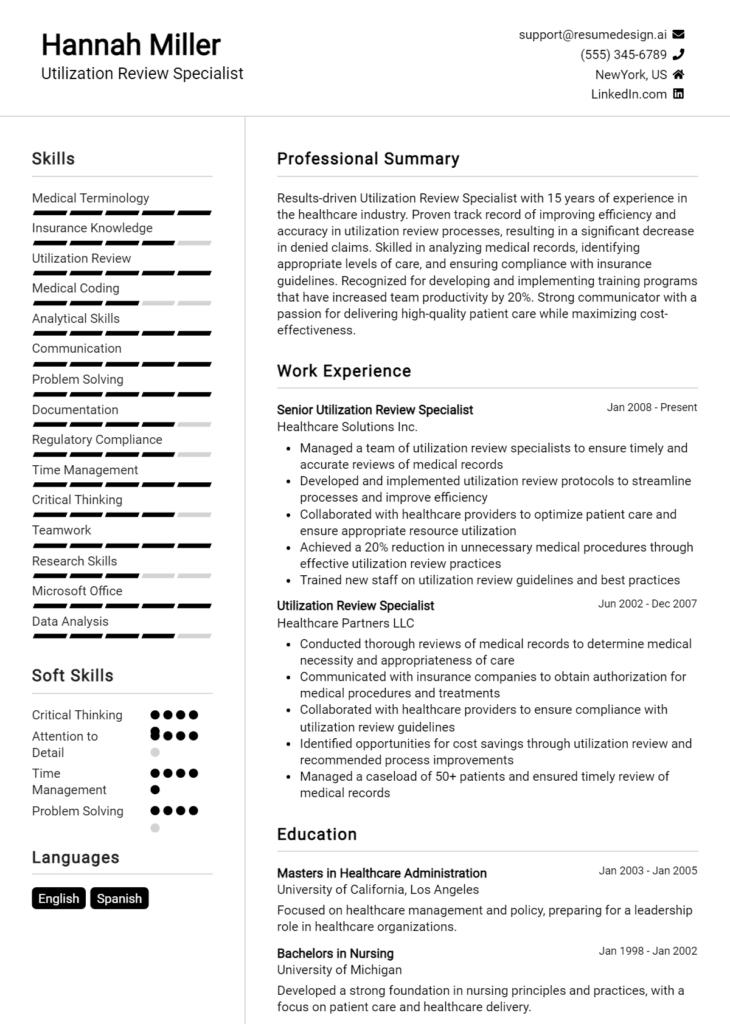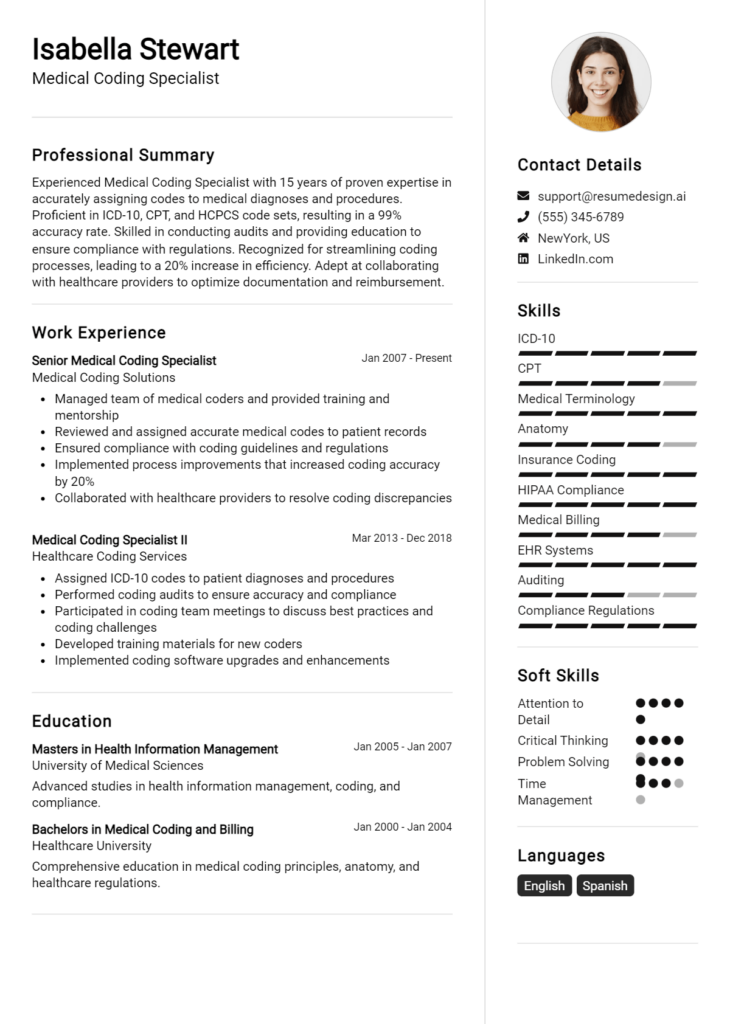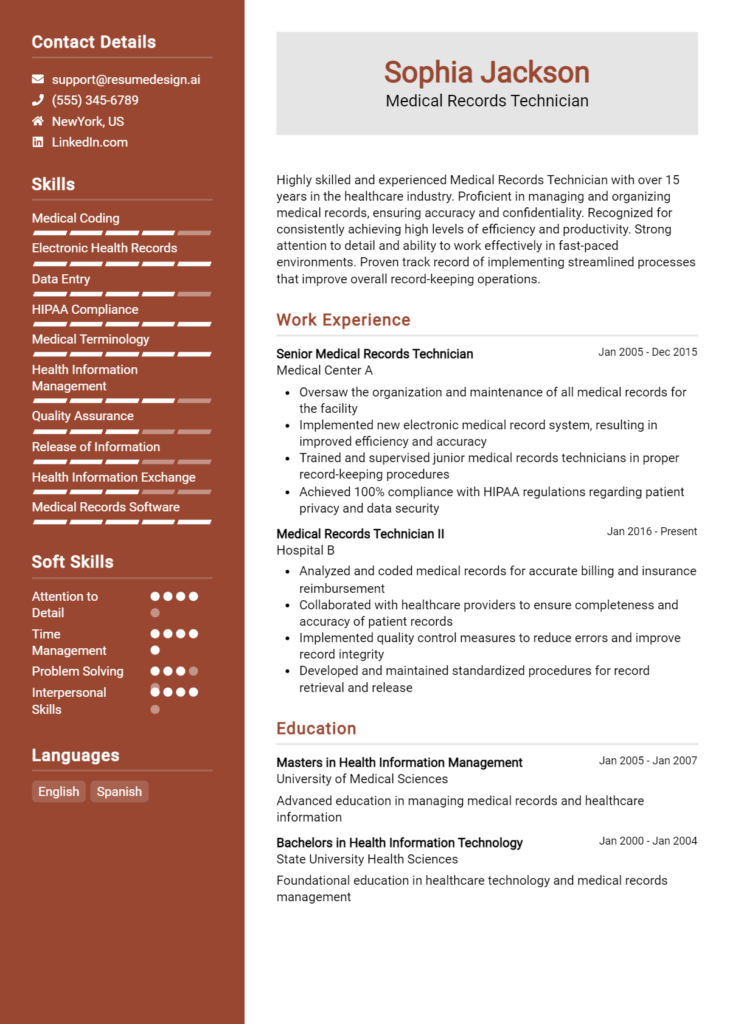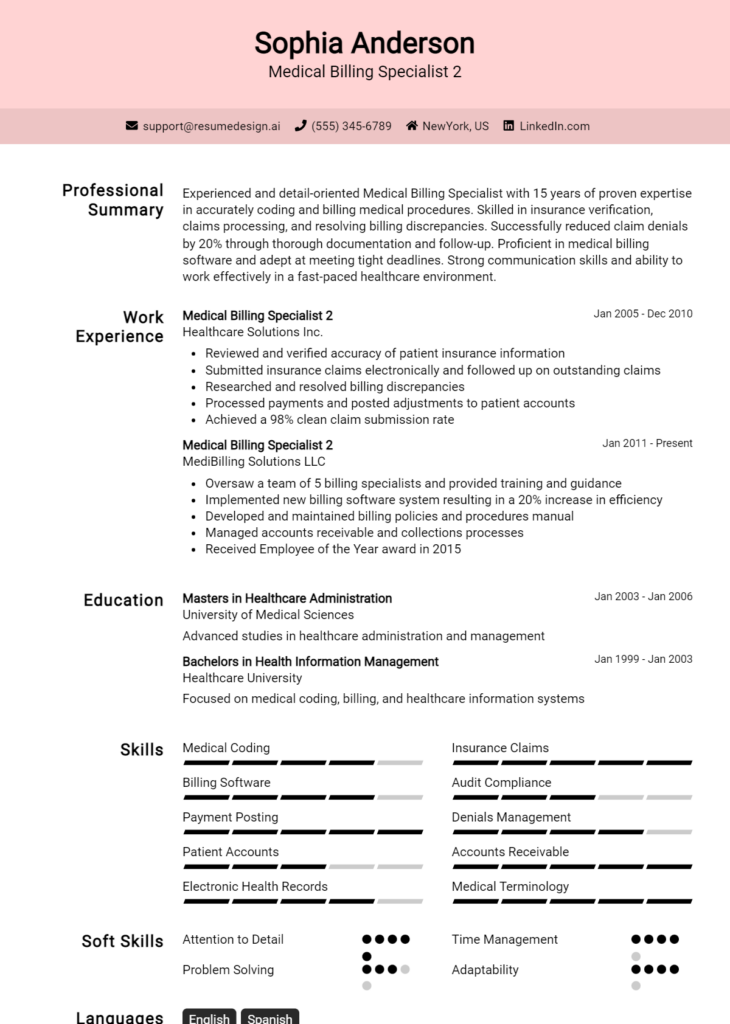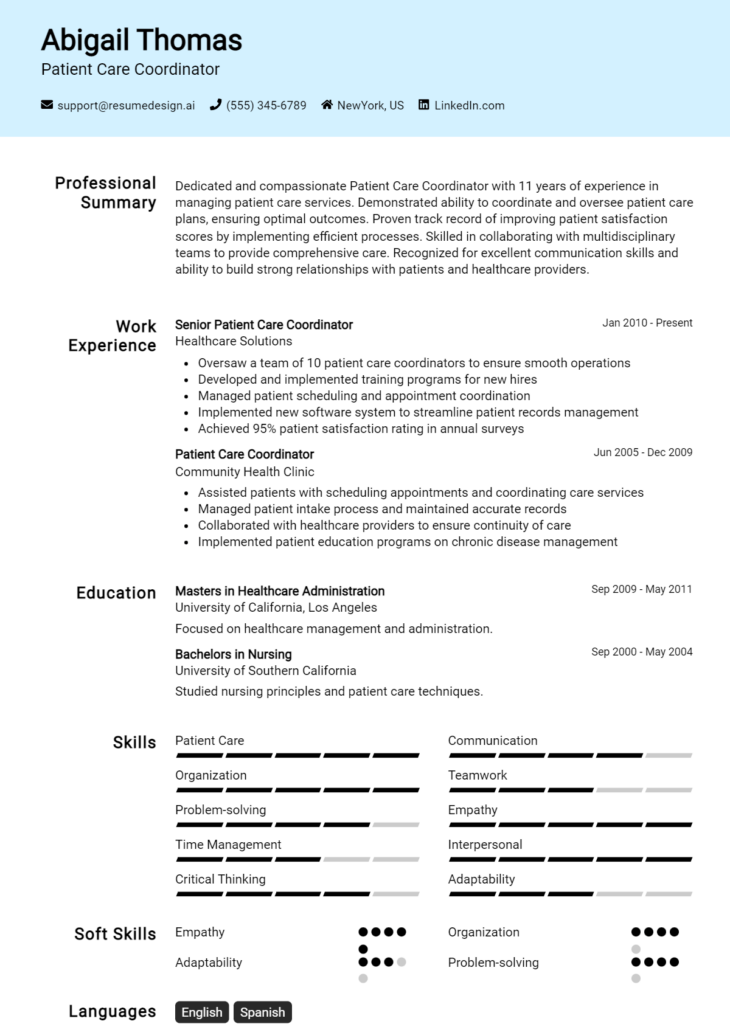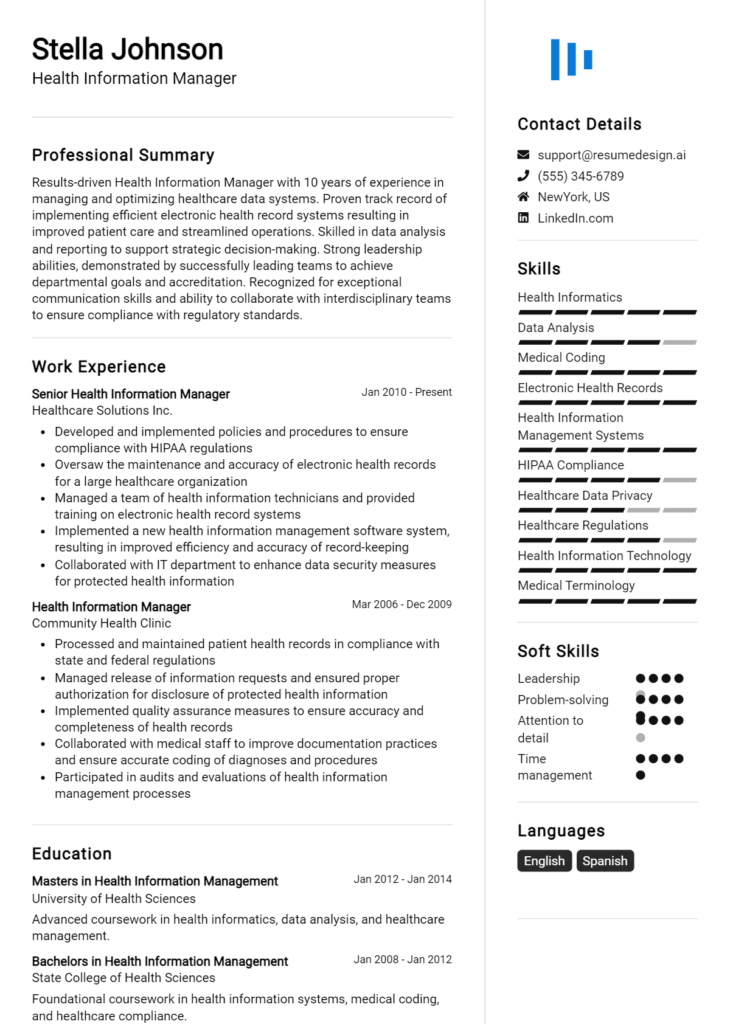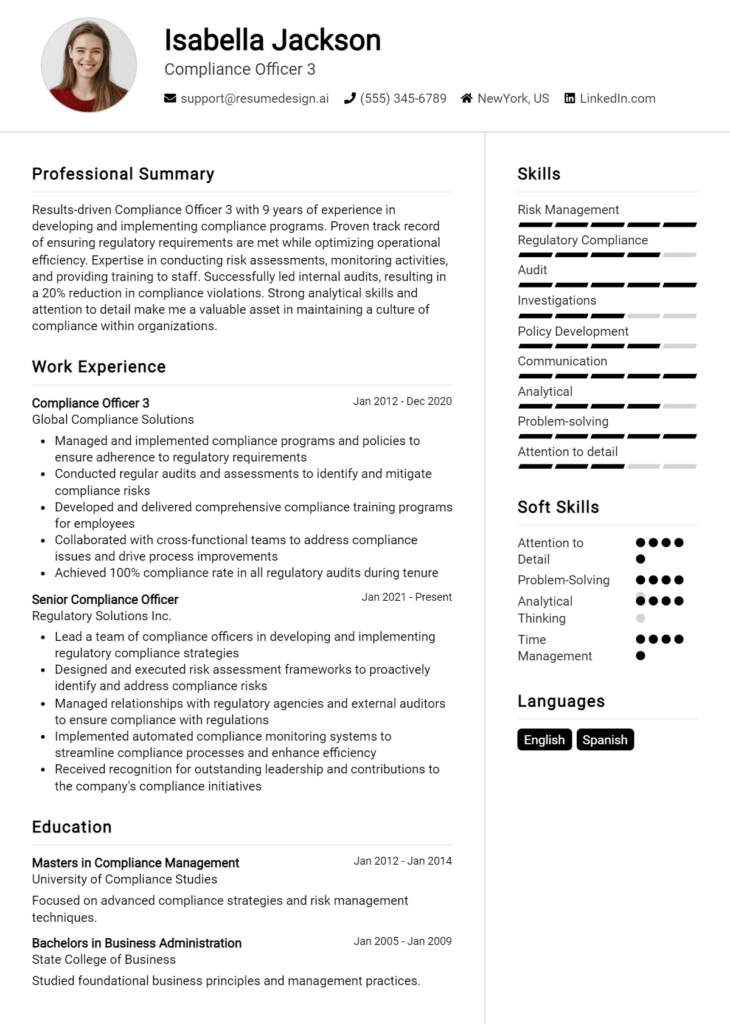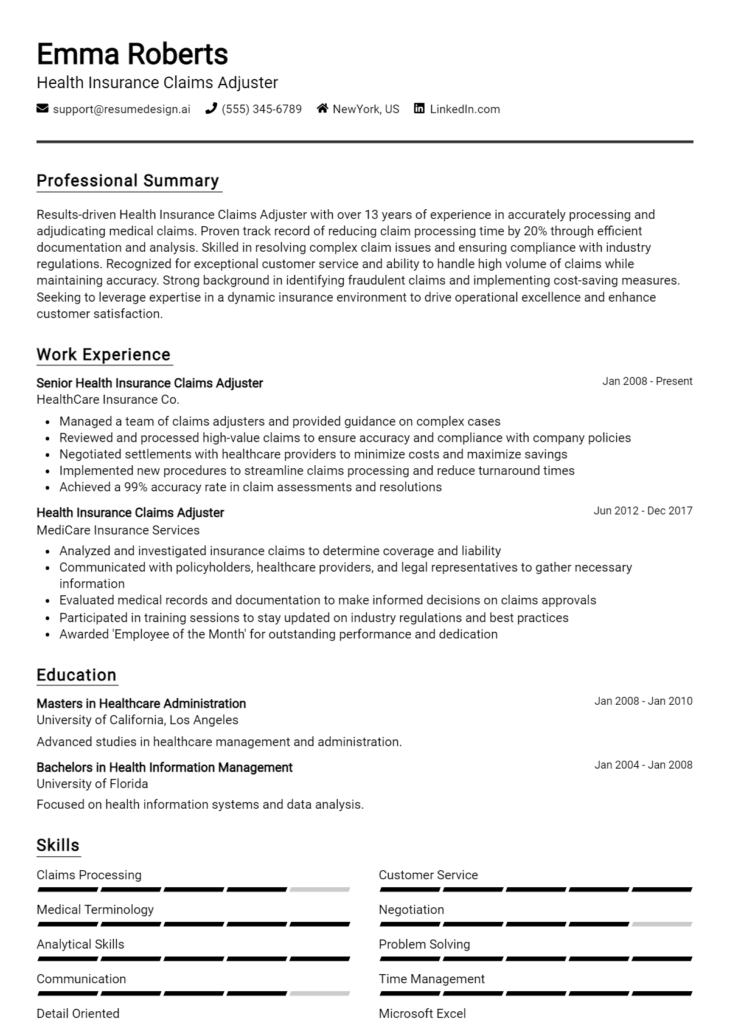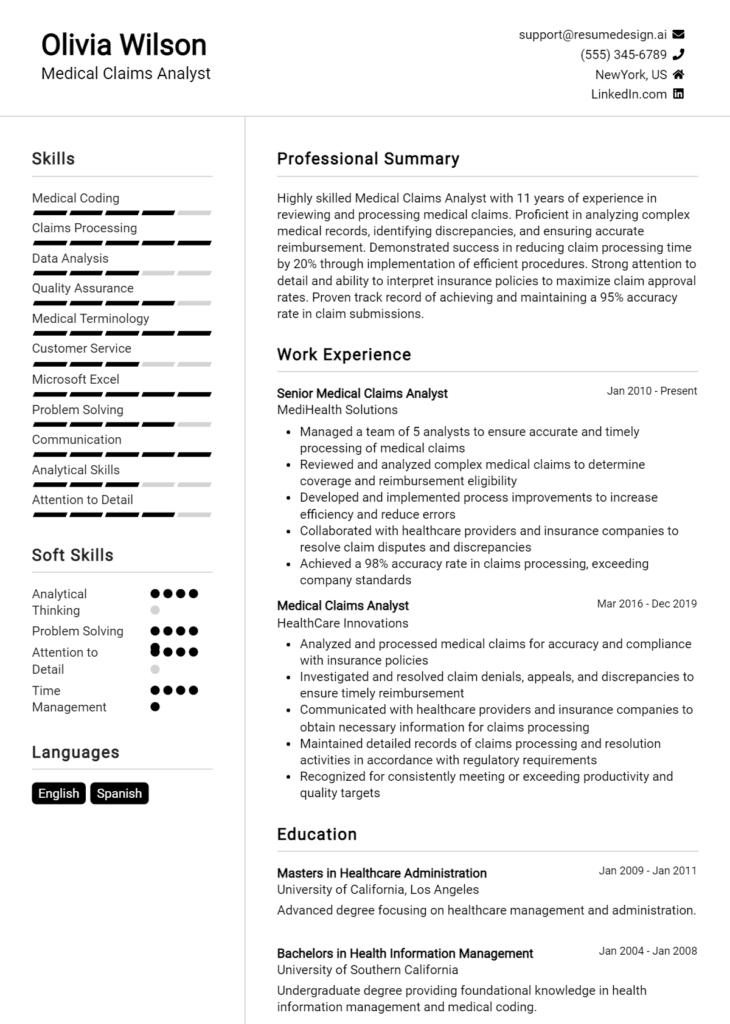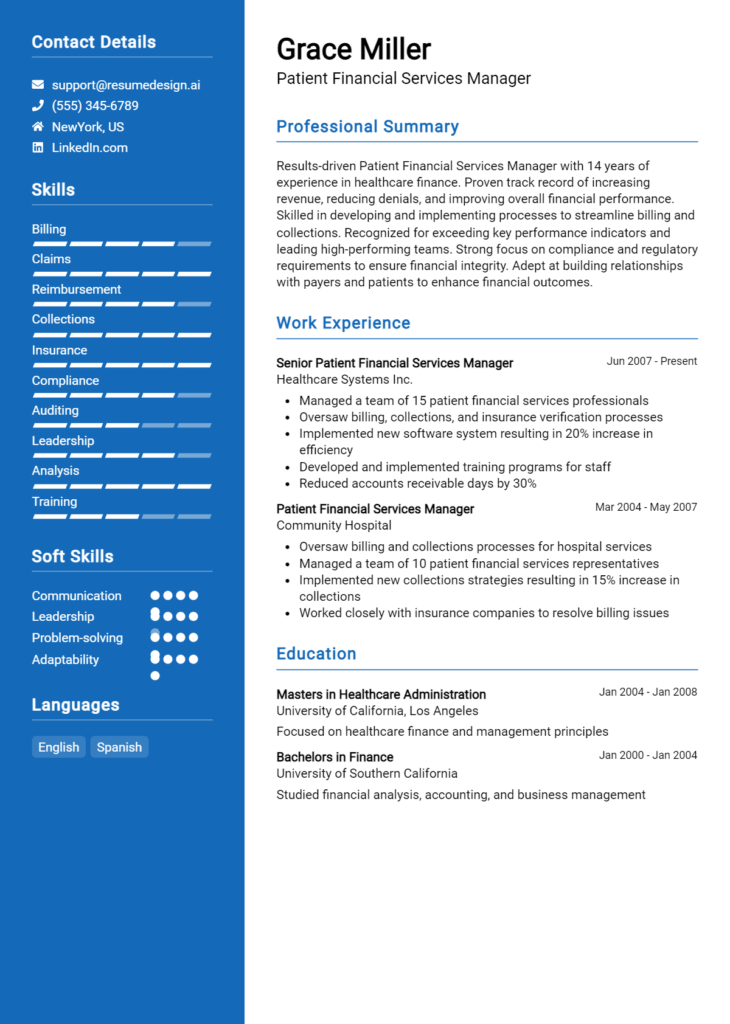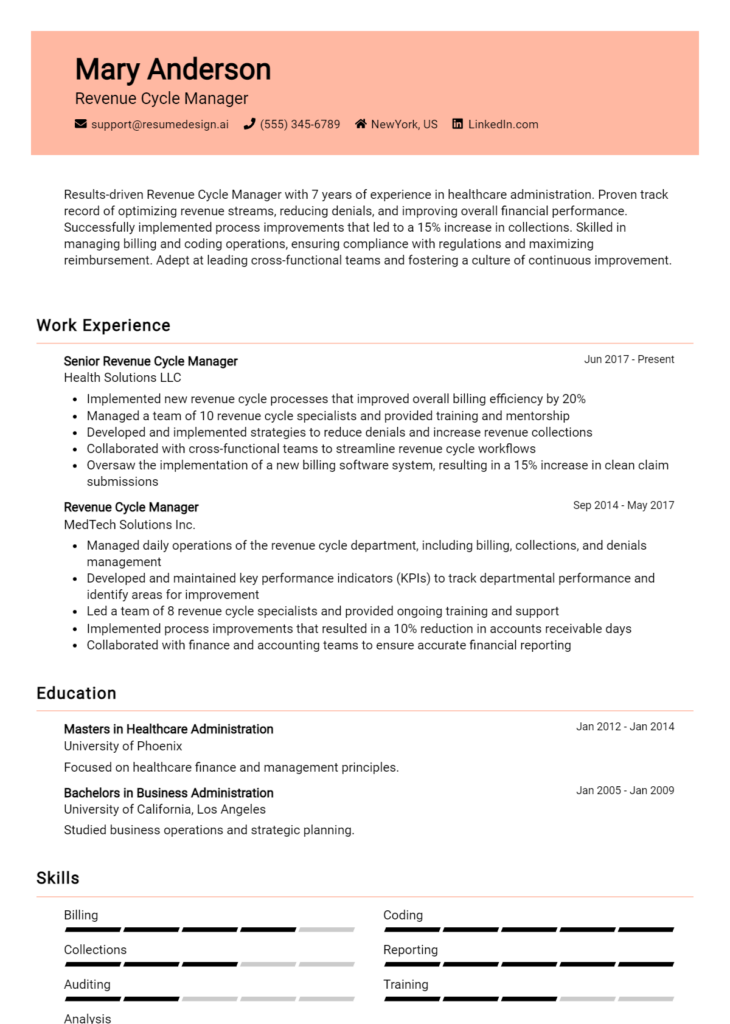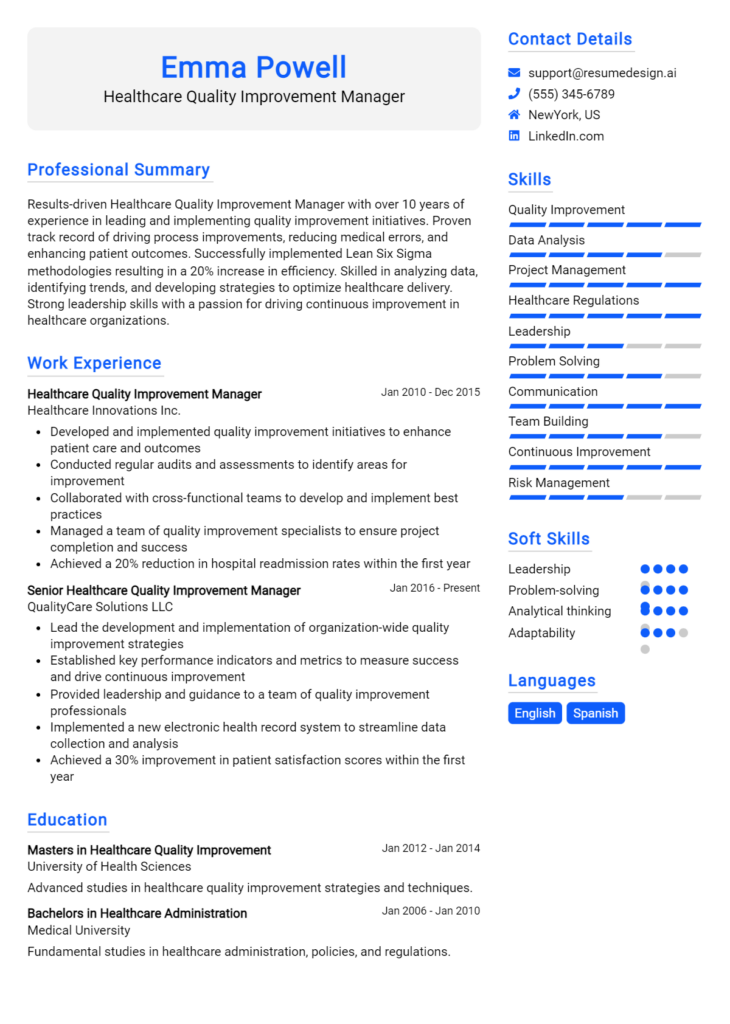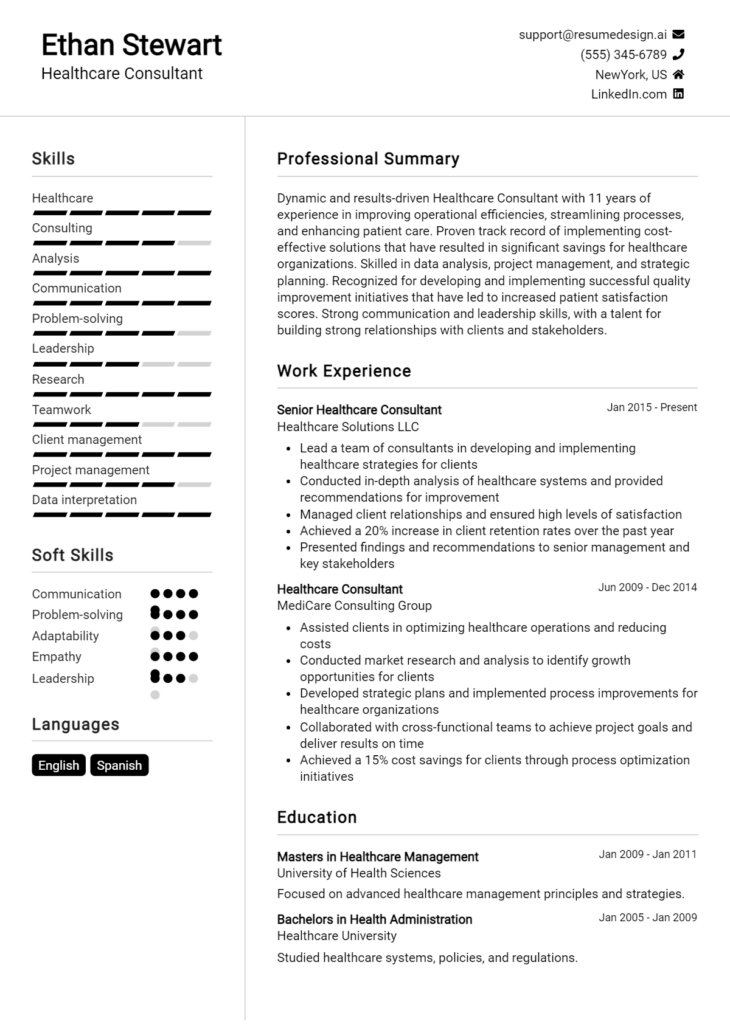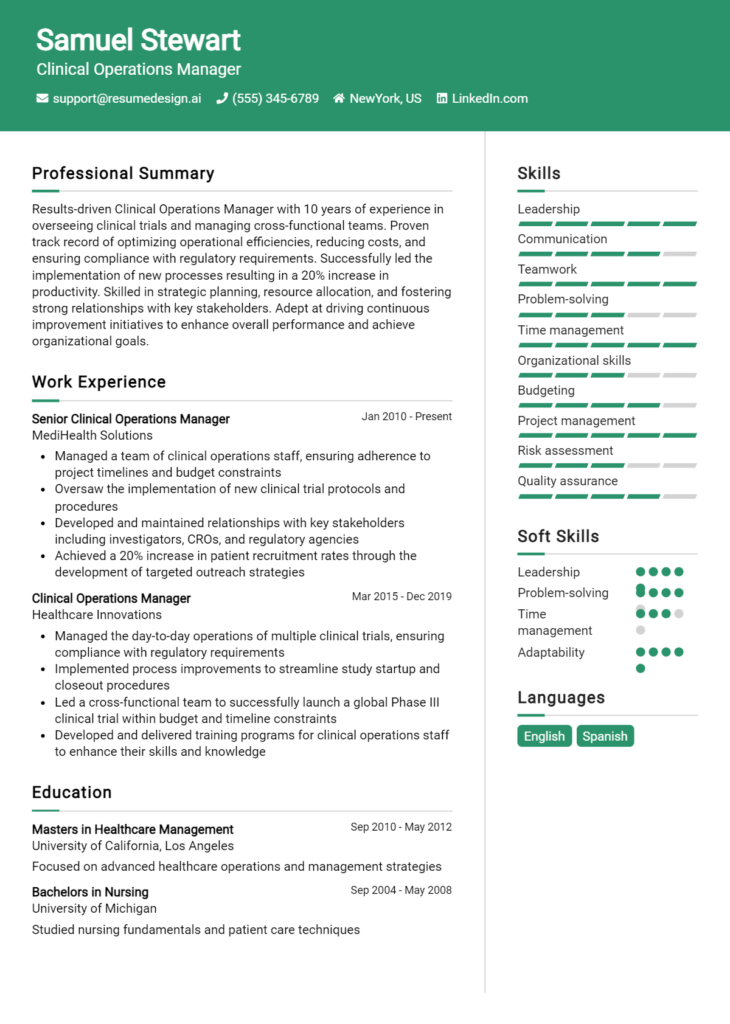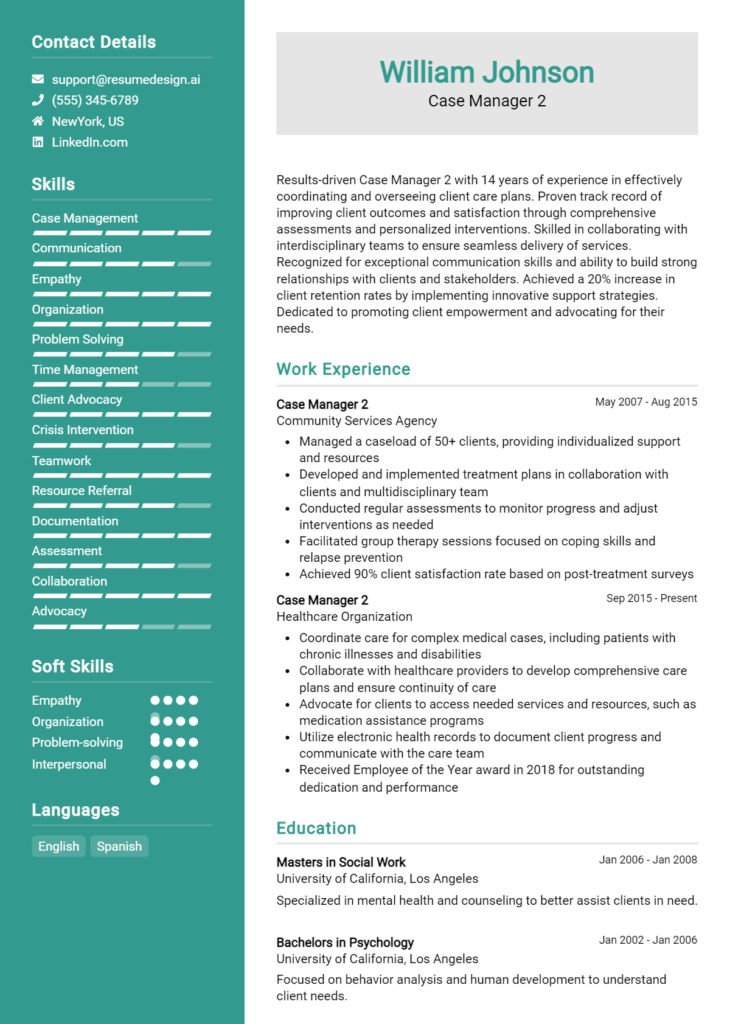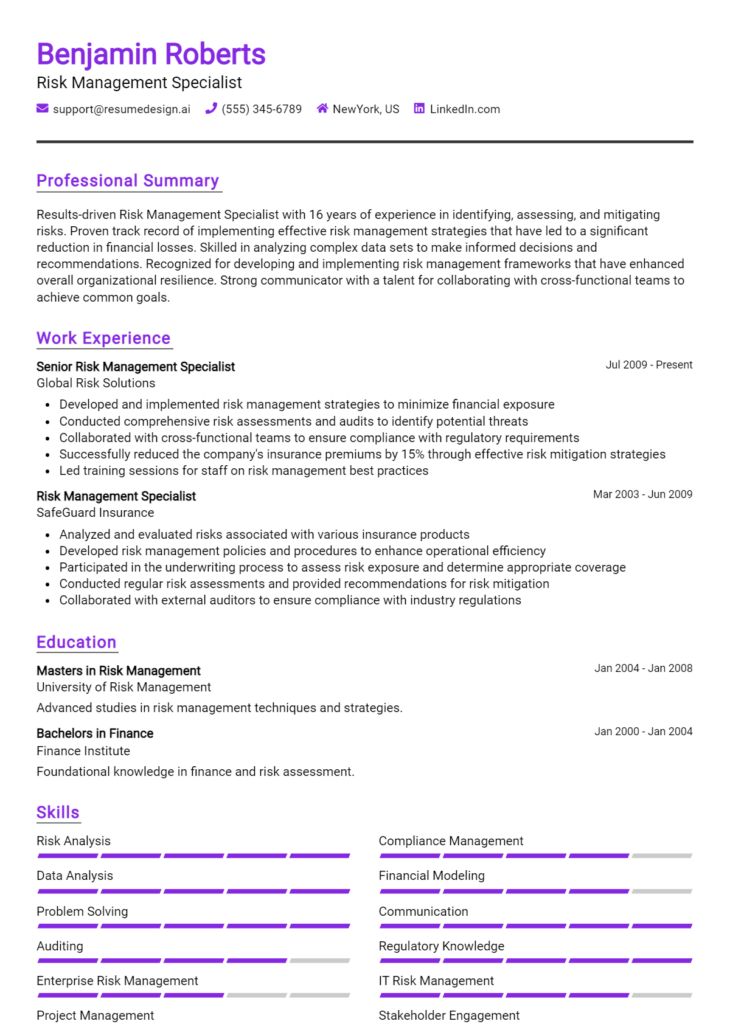Healthcare Data Analyst Core Responsibilities
A Healthcare Data Analyst plays a crucial role in bridging various departments by interpreting complex data sets to inform decision-making processes within healthcare organizations. Key responsibilities include analyzing patient data, ensuring data integrity, and collaborating with clinical and administrative teams to optimize operations. Essential skills encompass technical proficiency in data management tools, strong problem-solving capabilities, and operational insight. These competencies are vital for achieving organizational goals, and a well-structured resume can effectively highlight these qualifications to prospective employers.
Common Responsibilities Listed on Healthcare Data Analyst Resume
- Analyze and interpret healthcare data to identify trends and patterns.
- Collaborate with clinical staff to improve patient care outcomes.
- Ensure data integrity and accuracy in reporting.
- Develop and maintain dashboards and reports for stakeholders.
- Conduct data quality assessments and implement improvements.
- Utilize statistical methods to conduct risk assessments.
- Assist in the design and implementation of data collection systems.
- Communicate findings and recommendations to non-technical stakeholders.
- Support regulatory compliance and reporting requirements.
- Participate in cross-functional teams to enhance operational efficiency.
- Stay updated on healthcare regulations and data management best practices.
High-Level Resume Tips for Healthcare Data Analyst Professionals
In the competitive field of healthcare data analysis, a well-crafted resume serves as your calling card, making a significant impact on potential employers. As the first impression of your professional capabilities, your resume needs to effectively showcase your unique skills and notable achievements. For Healthcare Data Analyst professionals, it’s essential that this document not only reflects your technical expertise but also highlights your ability to translate complex data into actionable insights that improve patient care and operational efficiency. This guide will provide practical and actionable resume tips specifically tailored for Healthcare Data Analyst professionals that can help you stand out in this dynamic industry.
Top Resume Tips for Healthcare Data Analyst Professionals
- Tailor your resume to the job description by incorporating relevant keywords and phrases that align with the specific role you are applying for.
- Highlight your relevant experience in healthcare settings, emphasizing any roles that involved data analysis, reporting, or management.
- Quantify your achievements by using specific metrics such as percentage improvements, cost savings, or time efficiencies to showcase your impact.
- Include industry-specific skills such as proficiency in statistical software (e.g., SAS, R) and database management tools (e.g., SQL, Tableau) that are relevant to healthcare data analysis.
- Demonstrate your understanding of healthcare regulations and standards, such as HIPAA, to show your commitment to compliance in data handling.
- Utilize action verbs in your bullet points to convey your responsibilities and achievements dynamically; words like "analyzed," "developed," and "implemented" are impactful.
- Incorporate soft skills that are vital in healthcare environments, such as communication, problem-solving, and teamwork, to demonstrate your well-rounded capabilities.
- Keep your resume concise and focused, ideally one page, ensuring that all information is relevant and adds value to your application.
- Consider including a professional summary that encapsulates your experience, areas of expertise, and career objectives to give hiring managers a snapshot of your qualifications.
By implementing these tips, you can significantly enhance the quality of your resume, making it a powerful tool in your job search. A strong resume not only showcases your qualifications but also demonstrates your readiness to contribute to the ever-evolving field of healthcare data analysis, thereby increasing your chances of landing the role you desire.
Why Resume Headlines & Titles are Important for Healthcare Data Analyst
In the competitive field of healthcare data analysis, crafting an impactful resume headline or title is crucial for standing out among a sea of applicants. A strong headline serves as the first impression for hiring managers, encapsulating a candidate's key qualifications in a concise and compelling manner. It not only grabs attention but also sets the tone for the rest of the resume, guiding the reader to what makes the candidate uniquely suited for the role. A well-crafted headline should be relevant to the specific job being applied for, effectively summarizing the candidate's strengths in just a few words.
Best Practices for Crafting Resume Headlines for Healthcare Data Analyst
- Be concise: Keep the headline short and to the point, ideally under 10 words.
- Focus on relevance: Tailor the headline to the specific healthcare data analyst role you are applying for.
- Highlight key skills: Emphasize your most relevant skills or experiences that align with the job description.
- Use action-oriented language: Employ strong verbs and impactful phrases to convey your capabilities.
- Include quantifiable achievements: If possible, incorporate numbers or data to illustrate your past successes.
- Avoid jargon: Use clear and straightforward language that can be easily understood by hiring managers.
- Maintain professionalism: Ensure the tone is formal and aligns with industry standards.
- Review and revise: Proofread your headline to eliminate any errors and ensure clarity.
Example Resume Headlines for Healthcare Data Analyst
Strong Resume Headlines
"Results-Driven Healthcare Data Analyst with 5+ Years of Experience"
“Expert in Predictive Analytics and Patient Outcomes Improvement”
“Data-Driven Decision Maker Specializing in Healthcare Transformation”
“Skilled Healthcare Data Analyst with a Proven Track Record in Cost Reduction”
Weak Resume Headlines
“Healthcare Analyst”
“Looking for a Job in Data Analysis”
“Experienced Professional”
The strong headlines are effective because they are specific, highlighting the candidate's unique skills and achievements relevant to the healthcare data analyst role. They immediately communicate value and expertise, making a compelling case for why the candidate should be considered for the position. In contrast, the weak headlines fail to impress due to their vagueness and lack of specific information, leaving hiring managers without a clear understanding of the candidate's qualifications or suitability for the role.
Writing an Exceptional Healthcare Data Analyst Resume Summary
A well-crafted resume summary is crucial for a Healthcare Data Analyst as it serves as the first impression for hiring managers. It succinctly highlights key skills, relevant experience, and notable accomplishments that align with the specific job role. An impactful summary not only captures attention but also sets the tone for the rest of the resume, providing a snapshot of the candidate's qualifications. To maximize its effectiveness, the summary should be concise, targeted, and tailored to the job description, ensuring it resonates with the employer's needs.
Best Practices for Writing a Healthcare Data Analyst Resume Summary
- Quantify Achievements: Use specific numbers to demonstrate the impact of your work, such as percentages and dollar amounts.
- Focus on Key Skills: Highlight skills that are directly applicable to the role, such as data analysis, statistical software proficiency, and knowledge of healthcare regulations.
- Tailor to the Job Description: Customize your summary to reflect the specific requirements and preferences outlined in the job posting.
- Be Concise: Aim for 3-5 sentences that convey the most important information without overwhelming the reader.
- Showcase Relevant Experience: Include past roles or projects that directly relate to the responsibilities of a Healthcare Data Analyst.
- Emphasize Problem-Solving Abilities: Mention how you have used data to solve complex healthcare challenges or improve outcomes.
- Use Action-Oriented Language: Start sentences with strong action verbs to convey confidence and capability.
- Incorporate Industry-Specific Terminology: Use terminology that reflects your knowledge of healthcare data practices and standards.
Example Healthcare Data Analyst Resume Summaries
Strong Resume Summaries
Detail-oriented Healthcare Data Analyst with over 5 years of experience in leveraging data analytics to improve patient outcomes. Successfully reduced hospital readmission rates by 20% through the implementation of predictive modeling techniques.
Results-driven analyst skilled in SQL and Python, with a proven track record of analyzing large datasets to drive strategic decision-making. Achieved a 15% increase in operational efficiency by streamlining data reporting processes.
Healthcare Data Analyst with expertise in data visualization tools like Tableau, experienced in delivering actionable insights that enhanced patient care. Played a key role in a project that optimized resource allocation, saving the organization $500,000 annually.
Weak Resume Summaries
Experienced analyst looking for a job in healthcare data analysis. I have worked with data before and can analyze it.
Healthcare professional with some skills in data analysis. I want to contribute to a team and help with data-related tasks.
The examples of strong resume summaries are effective because they provide specific achievements, quantify results, and demonstrate relevant skills tailored to the role of a Healthcare Data Analyst. In contrast, the weak summaries lack detail, fail to show measurable outcomes, and appear generic, which does not engage the interest of hiring managers or highlight the candidate's qualifications adequately.
Work Experience Section for Healthcare Data Analyst Resume
The work experience section of a Healthcare Data Analyst resume plays a pivotal role in demonstrating a candidate's proficiency in handling complex healthcare data, as well as their capacity to lead teams and deliver high-quality analytical products. This section not only highlights technical skills—such as proficiency in data analysis tools and methodologies—but also reflects the analyst's ability to collaborate effectively with cross-functional teams and drive meaningful outcomes. Quantifying achievements and aligning experiences with industry standards are crucial, as they provide tangible evidence of the candidate's contributions and impact within the healthcare domain.
Best Practices for Healthcare Data Analyst Work Experience
- Utilize specific metrics to quantify achievements, such as percentage improvements or cost savings.
- Highlight technical skills relevant to the role, including data visualization tools, statistical analyses, or programming languages.
- Demonstrate leadership by showcasing team management or project oversight experiences.
- Align experiences with industry standards and best practices to enhance credibility.
- Emphasize collaboration by mentioning cross-departmental projects or stakeholder engagement.
- Use action verbs to convey a sense of initiative and impact.
- Tailor each experience to match the specific requirements of the job description.
- Incorporate relevant certifications or training that further validate expertise.
Example Work Experiences for Healthcare Data Analyst
Strong Experiences
- Led a team of 5 analysts in a project that streamlined patient data processing, resulting in a 30% reduction in turnaround time for reports.
- Developed a predictive analytics model that improved patient readmission rates by 15%, enhancing overall patient care quality.
- Collaborated with IT and clinical teams to implement a new data visualization tool, increasing data accessibility for decision-makers by 40%.
- Presented findings to senior leadership that informed a strategic initiative, contributing to a 20% increase in operational efficiency across departments.
Weak Experiences
- Worked on various data projects without specifying outcomes or contributions.
- Assisted in data collection and analysis tasks in a generic manner.
- Participated in team meetings to discuss data issues without detailing any resolutions or impacts.
- Handled data entry and basic reporting responsibilities, lacking quantifiable achievement metrics.
The examples provided illustrate the difference between strong and weak experiences in a Healthcare Data Analyst resume. Strong experiences clearly define specific contributions and outcomes, showcasing the candidate’s impact, technical skills, and ability to collaborate effectively. In contrast, weak experiences are vague and lack measurable results, making it difficult to assess the candidate's capabilities and effectiveness in their role. This distinction is crucial in presenting a compelling case to potential employers.
Education and Certifications Section for Healthcare Data Analyst Resume
The education and certifications section of a Healthcare Data Analyst resume plays a crucial role in illustrating the candidate's academic foundation, specialized training, and ongoing commitment to professional development. This section not only highlights degrees and certifications relevant to data analysis and healthcare but also showcases any pertinent coursework that demonstrates the candidate's expertise in the field. By providing details on relevant training and credentials, candidates can significantly enhance their credibility, making them more appealing to potential employers who seek individuals with a strong understanding of healthcare data systems and analytics methodologies.
Best Practices for Healthcare Data Analyst Education and Certifications
- Include relevant degrees, such as a Bachelor's or Master's in Health Informatics, Data Science, or a related field.
- List industry-recognized certifications, such as Certified Health Data Analyst (CHDA) or Certified Analytics Professional (CAP).
- Provide details about relevant coursework that pertains to data analytics, statistics, or healthcare management.
- Highlight any specialized training or workshops that enhance data analysis skills, particularly in healthcare contexts.
- Ensure that all listed qualifications are current and reflect the latest industry standards.
- Use clear formatting and consistent terminology to improve readability and professionalism.
- Tailor the education and certifications section to match the specific requirements of the job description.
- Consider including ongoing education efforts, such as online courses or webinars, to demonstrate continuous learning.
Example Education and Certifications for Healthcare Data Analyst
Strong Examples
- Bachelor of Science in Health Informatics, University of XYZ, 2021
- Certified Health Data Analyst (CHDA), American Health Information Management Association, 2022
- Relevant Coursework: Advanced Statistics for Healthcare Analytics, Data Visualization in Healthcare
- Certificate in Data Science for Healthcare, Online Learning Platform, 2023
Weak Examples
- Bachelor of Arts in English Literature, University of ABC, 2015
- Certification in Basic Computer Skills, Local Community College, 2016
- Coursework: Introduction to Psychology, University of DEF
- Certification in Microsoft Word, 2017
The strong examples are considered relevant because they directly align with the skills and knowledge required for a Healthcare Data Analyst position, showcasing degrees and certifications specifically related to healthcare and data analytics. In contrast, the weak examples indicate qualifications that are either unrelated or outdated, demonstrating a lack of focus on the necessary competencies for a career in healthcare data analysis.
Top Skills & Keywords for Healthcare Data Analyst Resume
In the rapidly evolving field of healthcare, the role of a Healthcare Data Analyst has become increasingly vital. Effectively analyzing healthcare data not only aids in improving patient outcomes but also enhances operational efficiency within healthcare organizations. A well-crafted resume for this position should emphasize both hard and soft skills that demonstrate proficiency in data analysis, statistical tools, and healthcare knowledge. Highlighting these skills can set a candidate apart in a competitive job market, showcasing their ability to extract actionable insights from complex datasets and communicate findings effectively to stakeholders.
Top Hard & Soft Skills for Healthcare Data Analyst
Soft Skills
- Strong Analytical Thinking
- Effective Communication
- Problem-Solving Skills
- Attention to Detail
- Team Collaboration
- Adaptability
- Time Management
- Critical Thinking
- Interpersonal Skills
- Project Management
Hard Skills
- Proficiency in SQL and Database Management
- Knowledge of Healthcare Regulations (HIPAA, HITECH)
- Experience with Data Visualization Tools (Tableau, Power BI)
- Statistical Analysis Software (SAS, R, Python)
- Understanding of Electronic Health Records (EHRs)
- Data Mining Techniques
- Familiarity with Machine Learning Algorithms
- Experience with Health Informatics
- Knowledge of Business Intelligence (BI) Tools
- Data Quality Assurance and Management
For more insights on skills and work experience, it's crucial to tailor your resume to highlight these competencies effectively.
Stand Out with a Winning Healthcare Data Analyst Cover Letter
As a highly motivated and detail-oriented Healthcare Data Analyst with a robust background in data management and analytics, I am excited to apply for the position at [Company Name]. My extensive experience in the healthcare sector has equipped me with the necessary skills to transform complex data into actionable insights that can enhance patient outcomes and streamline operations. I am particularly drawn to this role due to [specific reason related to the company or position], and I believe my analytical expertise aligns perfectly with your organization’s goals.
In my previous role at [Previous Company Name], I successfully led several data-driven projects that resulted in a 20% reduction in patient readmission rates. By utilizing advanced statistical techniques and data visualization tools, I provided the clinical team with insights that improved decision-making and resource allocation. My proficiency in programming languages such as SQL and Python, combined with my experience in using data analytics software like Tableau and SAS, allows me to analyze large datasets efficiently and present findings in a clear and compelling manner.
Moreover, I possess strong communication skills and a collaborative mindset, which are essential in working with multidisciplinary teams. I am adept at translating complex data into understandable reports for stakeholders, ensuring that everyone is aligned with the strategic objectives. I am also committed to staying current with industry trends and emerging technologies, which I believe is crucial in the ever-evolving field of healthcare analytics.
I am enthusiastic about the opportunity to contribute to [Company Name] and support its mission to improve healthcare outcomes through data-driven strategies. Thank you for considering my application. I look forward to the possibility of discussing how my background, skills, and passion for healthcare analytics can be an asset to your team.
Common Mistakes to Avoid in a Healthcare Data Analyst Resume
A well-crafted resume is crucial for landing a role as a Healthcare Data Analyst, as it serves as your first impression to potential employers. However, many candidates make common mistakes that can hinder their chances of standing out in a competitive job market. Understanding these pitfalls can help you create a more effective resume that highlights your skills and experience in the healthcare data field.
Neglecting Relevant Skills: Failing to include specific technical skills such as SQL, Python, or data visualization tools can lead to your resume being overlooked by recruiters who are searching for these competencies.
Using Generic Job Descriptions: Many candidates use vague descriptions for their previous roles. Tailoring your experience to highlight relevant achievements and responsibilities in healthcare data analytics can make a significant difference.
Lack of Quantifiable Achievements: Stating responsibilities without quantifying results (e.g., "Improved data reporting efficiency by 30%") can make your contributions seem less impactful.
Ignoring Industry Terminology: Not using healthcare-specific terminology or acronyms can make your resume appear unprofessional. Familiarity with terms like EHR, HIPAA, and clinical workflows is essential.
Overloading with Jargon: While it’s important to use industry language, overloading your resume with jargon can make it difficult to read. Aim for clarity and conciseness.
Formatting Issues: A cluttered or overly complicated format can distract from your content. Stick to a clean, professional layout that enhances readability.
Typos and Grammatical Errors: Small mistakes can undermine your professionalism. Proofreading your resume thoroughly or using tools to check for errors is essential.
Failing to Tailor for Each Application: Sending out the same resume for every job application can be detrimental. Customizing your resume to align with the specific job description shows that you have taken the time to understand the role and its requirements.
Conclusion
As a Healthcare Data Analyst, your role is crucial in transforming raw data into actionable insights that can improve patient care and operational efficiency. Throughout this article, we have explored the essential skills and qualifications needed for this position, including proficiency in statistical analysis, familiarity with healthcare regulations, and expertise in data visualization tools. We also discussed the importance of soft skills such as effective communication and teamwork, as these are vital for collaborating with healthcare professionals and stakeholders.
In today's competitive job market, having a well-crafted resume is key to standing out among potential candidates. We encourage you to take the time to review your Healthcare Data Analyst resume and ensure that it highlights your technical skills, relevant experience, and accomplishments effectively.
To assist you in this process, consider utilizing the following resources:
- Explore resume templates that can help you structure your information clearly and professionally.
- Use the resume builder to create a customized resume that showcases your unique qualifications.
- Look at resume examples to gain inspiration and see how others in your field present their skills and experiences.
- Don't forget to complement your resume with a strong application by using cover letter templates that can help you articulate your passion for the role and the value you bring.
Take action today by refining your resume and utilizing these tools to enhance your job application. Your next opportunity as a Healthcare Data Analyst could be just around the corner!

